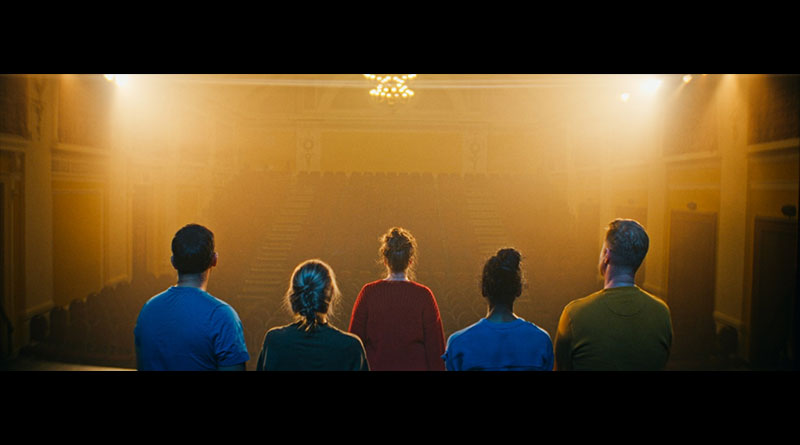
‘More Than A Parent’: New Short Film Highlights Suicide Risk for Parents Caring For Disabled Children
A new short film, based on University of Birmingham research, is sharing the voices of, and crisis facing, parent carers in the UK.
More than a parent, a short film made by award-winning filmmaker Bhulla Beghal of BlueBell Films and the University of Birmingham, draws on research which found that 41% of parents in England who care for a child with a disability or long-term illness have thought about suicide.
The research was led by Dr Siobhan O’Dwyer, Associate Professor of Social Care at the University of Birmingham, and was conducted in partnership with parent carers. It was published in Archives in Suicide Research.
Dr O’Dwyer’s study was the first to ask parent carers in the UK about thoughts of suicide. It found that among those parents who had thought about suicide, 1 in 3 had made a plan to kill themselves in the last year, but less than half had ever told anyone or sought help.
Dr O’Dwyer said: “The problem is not having a disabled or seriously ill child. The problem is trying to care for that child in a broken system. More than 800,000 children in the UK have disabilities or long-term illnesses and every day their parents have to fight to get them even the most basic support. Whatever system you look at – the NHS, social care, education, benefits – it is failing disabled children. And it’s their parents that have to plug the gaps.
“Parent carers are being forced to provide more and more care, with less and less support. They are also under incredible scrutiny. If they fight for their child, they get told they’re being pushy or greedy. If they don’t fight for their child, they’re accused of neglect. And this isn’t a one-off. These battles are day in, day out, for years on end. So, it’s not surprising that so many parents have reached the point where death feels like the only way out.”
Although the film is fictional, it was inspired by the stories of real parent carers. They spoke to filmmaker Bhulla Beghal about their experiences of navigating inadequate and frequently hostile systems, in pursuit of a better life for their children. The film ends with a call for the government to stop ignoring parent carers and “throw the damn lifeboat” because they are drowning.
Filmmaker Bhulla Beghal said: “It’s been a privilege to work on this project and to bring the voices of parent carers to the screen. To write the script, parent carers trusted me with their experiences and stories. It was a responsibility I took very seriously. My aim has been to make a film that represents them with integrity, honesty, and care. Their experiences are rarely represented, yet they carry extraordinary strength and love alongside enormous challenges. My hope is that this film not only raises awareness but sparks meaningful change, so parent carers and their families get the support they deserve.”
To accompany the film, members of the public are being encouraged to write to their MPs to call for policymakers to improve the health, social care, and SEND systems, to ensure disabled children and their parents get the support they need. Carers are not currently recognised as a priority group in the suicide prevention strategy for England, and there is currently no national strategy on unpaid care. Although the Care Act 2014 entitles all carers in England to an assessment of their needs, Carer Assessments do not consider suicide risk, and many carers have never received an assessment.
A template letter is available on the University of Birmingham website, which calls for:
- The recognition of unpaid carers in the suicide prevention strategy for England.
- The creation of a national carers strategy (and for the reduction of suicidal thoughts, and the prevention of deaths by suicide, to be a priority within that strategy).
- Increased funding to the health, social care, and education services that support disabled children.
- Open and intent-driven conversations about the issues that parent carers face.
The film is being officially launched at a fringe event at a Liberal Democrat party conference due to the focus the party has given to the experiences of unpaid carers, with leader Ed Davey MP being open about his experiences caring for his disabled son.
Dr O’Dwyer concluded: “It can be hard for people to connect with research, but I think everyone will connect with this film. It is a powerful glimpse into the lives of so many families across the UK and both the love, and the fear are palpable. I hope every MP and Lord will watch this film and remember that the decisions they make in Westminster have a real and serious impact on the lives of everyday people.”
You can watch the full short film on the University of Birmingham website.
Carers who need urgent support can call The Samaritans on 116 123 or text SHOUT to 85258.

